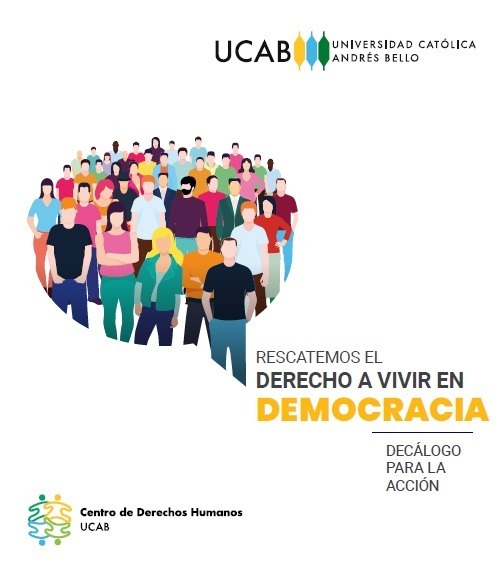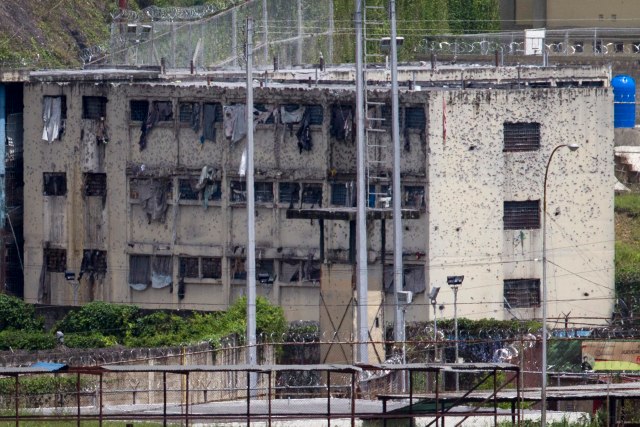Photo: Threat by paramilitary groups telling National Assembly members “We are coming for you.”
At least fifteen members of the National Assembly (legislative power) and their families have been subjected to threats in their homes. Deputies Williams Davila; María Beatriz Martínez; Milagros Eulate; José Antonio Mendoza; Kerrins Mavares; Eliézer Sirit; Luis Lippa; Denncis Emilio Pazos Bravo; Larissa Gonzalez; Franklin Duarte; Sergio Vergara; Luis Florido; Juan Pablo Guanipa; Jose Antonio Mendoza; José Manuel Olivares and Luis Silva, were the target of threats last week from paramilitary groups that marked the exterior of their homes with paint.
These threats come just mere days after the events of April 30th -in which the Caretaker President Juan Guiadó called on civilians and the military to take the streets and remove Nicolás Maduro and his faction from power- in the midst of a crackdown to stifle the insurgent movement and arrest the leaders involved in it, including the First Vice-President of the National Assembly, Edgar Zambrano.
During the protests of 2014 and 2017, Provea documented similar threats made by paramilitary groups as well as other repressive tactics made by the Maduro government. However, concerns arise over a new possible pattern in State terrorism executed by third parties that have become a State tool for oppression; parties that act with impunity, resources, encouragement and guidance.
“I call on the paramilitary groups, the time has come for active resistance”
In March of this year, Nicolás Maduro made a grave and dangerous call to paramilitary groups that support his dictatorship to initiate an “active resistance”. In a mandatory television and radio broadcast message on March 11th, he openly encouraged external political groups and the State’s security apparatus to neutralize the civil protests.
Maduro incited the perpetration of crimes by publicly calling for groups of armed civilians to participate in crowd control and security processes, and by welcoming their use of force and civil rights abuses as acts that go in hand with the responsibilities of the Venezuelan State.
During his public address on March 5th, 2014, commemorating the first year since the death of former president Hugo Chávez Frias, Nicolás Maduro stated: “On this day, March 5th, the remnants of violent groups had threatened our people with paralyzing the country. The country is working freely and peacefully from all hours of the morning, and it will continue as such all day, every day, for all the days to come. I want to honor the National Bolivarian Guard that has been on the streets fighting for peace. Today, small groups attempted to barricade and set main roads on fire. Any flame that is ignited will be stamped out. I call on the people, the Bolívar Chávez Battle Units, the Communal Councils, the social movements, the Communes, the youth movements, workers, farmers, women – I call on all peoples to follow the orders of our commander Hugo Chávez: We will rally citizens to stamp out any flame to ensure peace for our country”.
Maduro’s words represent a call to perpetrate illegal and unconstitutional acts by openly urging the citizenry to assume the task of maintaining public order, which is reserved exclusively for State security forces per article 332 of the National Constitution. Maduro’s statement directly calls for civilians and government-aligned groups with crowd control duties and keeping public safety.
On February 21st, Nicolás Maduro himself announced the nationwide creation of “Popular Anti-coup Units” aimed at “counteracting the fascist coup with a mobilized, rallied citizenry”. Said units were commanded by then-President of the National Assembly, Diosdado Cabello, and coordinated with the National Bolivarian Armed Forces and other State security agencies to exercise surveillance, monitoring and control of any acts classified as terrorism or conspiracies.
Nicolás Maduro’s regime has built and pushed a narrative that qualifies the civil protests demanding adherence to the National Constitution, the return of democratic processes and guarantees for social, economic and cultural rights as part of a broad terrorist plot. Tactics ranging from the promotion of hate campaigns through the national system of public media to the digital manipulation of photographic images to portray the protests as violent have been used by the regime to justify the excessive use of force against protesters; the jailing of political leaders and social activists; and the unconstitutional use of military jurisdictions to process civilians detained during protests.
The regime has ramped up its repression to new heights, severely compromising the right to life and physical integrity for hundreds of thousands of civilians protesting in the streets of Venezuela. Adding armed civilians to the State apparatus of repression exponentially elevates the risks of violating human rights. Since the 2014 protests, the self-styled Colectivos – a term used in our country by paramilitary groups that support the de-facto government, have been implicated in at least 53 murders during protests that took place between February of that year and March 2019. In 2017 alone, they were responsible for 2,481 cases of violations and abuses of personal integrity, out of the total 7,357 accounts documented by Provea during that year.
Maduro’s call for “active resistance” from paramilitary groups added a new danger to the current juncture, marked by an increase of State sponsored terrorism and lethal police brutality used against protesters. Venezuelans’ discontent and renewed commitments to remain in the streets for the return of democracy and better living conditions has been met with mounting oppression from Maduro’s regime, which clings to power at the cost of Venezuelan lives, liberty and safety.
Paramilitarism and State responsibility
In Latin America, Colombia’s experience with the appearance and expansion of paramilitary groups has produced case laws regarding the State’s responsibility to address human rights abuses perpetrated by these groups. After Colombia’s court system failed to deliver justice, some landmark cases were handed to the Inter-American Court of Human Rights (IACHR).
In the case known as the Mapiripán Massacre (the detention, torture and execution of 49 people in the Mapiripán municipality, in the Meta Department) the IACHR ruled that it was not only the State’s responsibility to move against paramilitary groups but that it was also its duty to not remain apathetic in the face of their operations: “Numerous accounts of paramilitary groups working alongside State armed forces in similar relation to the events presented in this case have been documented, as well as omissive stances from armed forces personnel regarding the acts of the aforementioned groups (…) -there are- documented cases of violations of citizens’ right to life, in which the government and the armed forces allegedly collaborated with paramilitaries to assassinate, threaten or forcibly displace civilian populations”.
By asserting State accountability, the Court ruled that the State must answer for the oversight of its authorities, which were tasked with protecting the population but failed to do so. Thus, by disobeying the law, members of the Colombian Armed Forces violated international agreements undertaken by the State. Another issue was the legislature that allowed groups that later devolved into paramilitaries to exist in the first place. The verdict found that: “The State played an important part in enabling the so-called paramilitary or self-defense groups, which it allowed to act with legal protection and legitimacy in the 70s and 80s. It is therefore accountable in a general sense for their existence and empowerment”.
In another case, the 19 Merchants v. Colombia (involving the detention, forced disappearance and execution of 19 people in the Puerto Boyacá district of the Magdalena Medio subregion), more measures were introduced regarding State responsibility: “Despite Colombia’s allegations that its policy was not to incentivize the creation of such criminal groups, it is nonetheless still accountable for the way in which it interpreted legal frameworks, which protected these ‘paramilitary’ groups for years; for the disproportionate use of weapons it provided to these groups and for its failure to adopt the necessary steps to forbid, prevent and adequately punish the aforementioned criminal activities”. Regarding the fact that crimes were committed by “civilians” and not by authorized State officials, it notes: “To establish that a crime has been committed, there is no need to determine the culpability of its perpetrators or their intentions as it occurs in domestic criminal law, and neither is it compulsory to identify the individual actors to which the crimes are attributed. It is merely enough to prove that the government supported or tolerated the abuse of rights”.
It was also declared that “a criminal violation of human rights that can’t be directly attributed to the State to begin with as a result of the crime being committed by a third party or by an unknown perpetrator, for instance, may trigger international State responsibilities – not because of the crime itself, but because of the lack of due diligence to prevent the crime or to penalize it in the appropriate terms.”
Previous international law cases have ruled that when groups act with complicity and assistance from armed forces, receiving direct and indirect financial support for their workings and enjoying legal status for their existence as well as for their operations, then the activities of said paramilitary groups are considered human rights violations exempt from the statute of limitations.
Provea vehemently reminds the members of the security forces and the ruling clique in Venezuela that they must respect and preserve constitutional guarantees for all human rights. We reiterate that the installation of a de facto government does not free officials -even those that are usurping positions of power- from the lawful duties attached to their posts, nor does it exonerate them from the human rights transgressions perpetrated by groups that act under their encouragement and protection.
Provea educates and provides legal support for vulnerable communities, victims, or potential victims of human rights violations, documents and investigates these situations, and denounces abuses of power and human rights violators, building with other organizations as well as social and popular movements.



